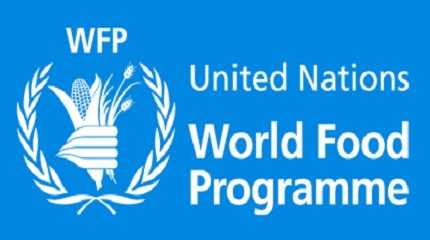
UNITED NATIONS, Jun 20 (APP): Further food ration cuts are imminent for refugees as humanitarian needs multiply around the world while funding struggles to keep pace, the World Food Programme (WFP), a Rome-based UN agency, warned on World Refugee Day.
“As global hunger soars way beyond the resources available to feed all the families who desperately need WFP’s help, we are being forced to make the heart-breaking decision to cut food rations for refugees who rely on us for their survival,” David Beasley, WFP’s Executive Director, said in a statement on Monday.
In Islamabad, a Foreign Office spokesman expressed Pakistan’s solidarity with refugees around the world, underscoring the need for finding sustainable solutions for refugee situations, including through conflict prevention and resolution.
Pakistan, the spokesman said, is hosting host more than 3 million Afghans, while another 0.4 million Rohingya Muslims have also found refuge in the country, highlighting Pakistani people’s exemplary generosity, hospitality and compassion towards the refugees.
Meanwhile, the UN said that WFP was being forced to significantly reduce rations to refugees across its operations because of the lack of adequate resources. Ration cuts of up to 50 per cent are affecting three-quarters of all refugees supported by WFP in Eastern Africa, with those living in Ethiopia, Kenya, South Sudan and Uganda most affected.
Severe funding constraints in West Africa, where hunger has reached a record high in a decade, have forced WFP to significantly reduce rations for refugees living in Burkina Faso, Cameroon, Chad, Mali, Mauritania and Niger.
WFP assists on average 500,000 refugees in Southern Africa annually.
Despite generous support from donors, resourcing remains insufficient to meet the very basic needs of refugee households and imminent disruptions are expected in Angola, Malawi, Mozambique, Republic of Congo, Tanzania and Zimbabwe.
“Without urgent new funds to support refugees – one of the world’s most vulnerable and forgotten groups of people – many facing starvation will be forced to pay with their lives,” Beasley warned.
Hamstrung by funding constraints, WFP is having to prioritize assistance to ensure that vital food reaches the most vulnerable families first – often leaving refugees without support at a time where food assistance is the difference between life and death.
As WFP is forced to institute ration reductions to stretch limited resources, this year saw an additional six million refugee movements from Ukraine, it was pointed out.
In response, WFP in Moldova has delivered nearly 475,000 hot meals to affected families across 31 different localities.
According to the latest figures released by the UN refugee agency (UNHCR), 67 per cent of refugees and asylum seekers have originated from countries with food crises in 2021.
This, coupled with devastating conflict and climate extremes, is hitting refugees the hardest.
While the immediate needs of refugees remain WFP’s top concern, more than ever there is also a need now for sustained investments in programmes that foster the self-reliance of refugee populations.
WFP, together with partners and governments, is working towards building and supporting livelihood and resilience programmes for refugees.
In 2021, the UN agency assisted nearly 10 million refugees globally.
On Sunday, to mark the Day, UN Secretary-General Antonio Guterres visited refugee families from Iraq and Afghanistan who are now living in the New York area. His first stop was in Brooklyn, and then he went to Queens, the two boroughs of New York City.
The Secretary-General recalled that when he led the UN Refugee Agency (UNHCR), there were twice as many resettlement opportunities available for refugees. He urged more States to open their borders to asylum seekers. He called on all to stand together in solidarity and defend the integrity of the international protection regime.
For his part, Filippo Grandi, the UN High Commissioner for Refugees, emphasized that the world has a choice: either come together to reverse the trend of persecution, violence, and war, or accept that the legacy of the 21st century is one of continued forced displacement. “We all know which is the right – and smart – thing to do”, Grandi said.




